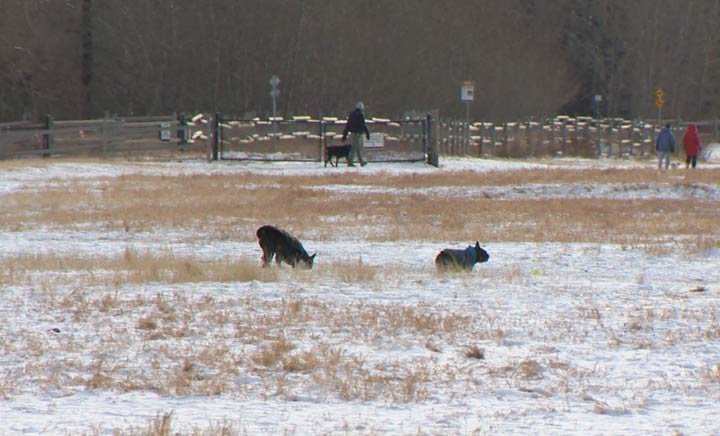A puppy has tested positive for parvovirus and the Saskatoon SPCA is warning pet owners in the city and surrounding areas of the threat it poses to dogs.

Officials with the non-profit organization said the puppy came into their care late last week and the intestinal disease is highly contagious.
“Parvovirus is always in our community. The mild winter and spring-like weather may be one reason we are seeing it earlier than usual this year,” Saskatoon SPCA executive director Patricia Cameron said.

Get breaking National news
“If animals are exposed to an infected dog or the dog’s feces, they can pick it up.”
READ MORE: Bitty the Ontario pit bull finds safe haven at Saskatoon SPCA
The majority of parvovirus infections are seen in puppies between six weeks and six months old.
Saskatoon SPCA officials said the best way pet owners can protect their dogs from the potentially fatal disease is to keep vaccinations up to date.
“The disease is painful, serious, and treatment is expensive. It is much better to vaccinate your pet,” Cameron said.
“Parvovirus comes on quickly. Your pet may become lethargic, lose their appetite, but the most common signs that we see are vomiting and diarrhea.”
READ MORE: Saskatoon feline avoids cat-astrophe at recycling facility
If a dog shows symptoms, seek immediate veterinary care because delaying treatment may be lethal to canines.
Saskatoon SPCA said if people have had an infected dog in their home, the disease can linger a long time and infect future pets. Parvovirus does not affect people.


Comments
Comments closed.
Due to the sensitive and/or legal subject matter of some of the content on globalnews.ca, we reserve the ability to disable comments from time to time.
Please see our Commenting Policy for more.